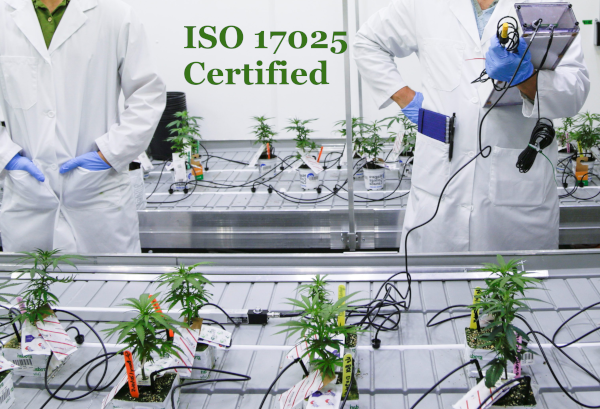 An ISO 17025 audit for cannabis labs brings several benefits to the laboratory and the broader cannabis industry. Here are some of the main advantages:
An ISO 17025 audit for cannabis labs brings several benefits to the laboratory and the broader cannabis industry. Here are some of the main advantages:A. Compliance with Regulatory Requirements: Many jurisdictions require cannabis testing laboratories to adhere to specific quality standards, and ISO 17025 is widely recognized as the international standard for testing and calibration laboratories. By undergoing an ISO 17025 audit, cannabis labs can demonstrate their compliance with these regulatory requirements, which can help ensure legal and regulatory compliance.
B. Quality Assurance and Reliability: ISO 17025 provides a framework for implementing a robust quality management system (QMS) in cannabis testing laboratories. The standard emphasizes the use of validated methods, proper documentation, equipment calibration, proficiency testing, and rigorous quality control measures. By adhering to these requirements, labs can enhance the reliability and accuracy of their testing results, which is crucial for consumer safety, product quality, and industry credibility.
C. Improved Competence and Expertise: ISO 17025 encourages the continuous professional development of laboratory personnel. Labs seeking accreditation must demonstrate the competence of their staff, including their qualifications, training, and experience. This emphasis on competence ensures that cannabis labs have knowledgeable and skilled staff members who can perform accurate and reliable testing, thereby raising the overall level of expertise within the industry.
D. Enhanced Credibility and Market Access: ISO 17025 accreditation is recognized globally and signifies that a laboratory meets internationally accepted standards for testing competence. Achieving accreditation can enhance the credibility and reputation of a cannabis testing lab, instilling confidence in clients, regulators, and other stakeholders. Accreditation can also help labs gain market access and differentiate themselves in a competitive landscape, attracting clients who prioritize quality and reliability.
E. Risk Management and Error Reduction: ISO 17025 requires laboratories to implement risk management processes and procedures. By identifying and assessing potential risks associated with testing processes, equipment, and personnel, labs can develop strategies to mitigate those risks. This proactive approach to risk management helps reduce errors, prevent accidents, and improve the overall safety of laboratory operations.
F. Continuous Improvement: ISO 17025 promotes a culture of continuous improvement within cannabis labs. Accredited labs are required to monitor and evaluate their processes, implement corrective actions when necessary, and continually seek ways to enhance their operations. This commitment to continuous improvement ensures that laboratories stay up-to-date with the latest scientific advancements, technologies, and best practices, ultimately leading to improved testing accuracy and efficiency.
G. International Collaboration and Recognition: ISO 17025 accreditation facilitates international collaboration and recognition. Laboratories accredited to ISO 17025 can participate in proficiency testing programs, inter-laboratory comparisons, and other collaborative initiatives. This involvement helps labs benchmark their performance against international standards, share knowledge and best practices, and contribute to the advancement of the cannabis testing industry as a whole.
An ISO 17025 audit for cannabis labs brings benefits such as compliance with regulatory requirements, improved quality assurance, enhanced credibility, risk management, continuous improvement, and opportunities for international collaboration. These advantages contribute to the overall integrity and reliability of cannabis testing, ensuring the safety and quality of cannabis products for consumers and supporting the growth and development of the industry.
